
Seniors are dealing with special concerns when it comes to their diet—certain foods are simply not worth the risk. “Adults 65 and older are at a higher risk for hospitalization and death from foodborne illness,” says the USDA. “This increased risk of foodborne illness is because our organs and body systems go through changes as we age. Underlying chronic conditions, such as diabetes and kidney disease, may also increase a person’s risk of foodborne illness.” Here are 9 foods every senior should avoid.
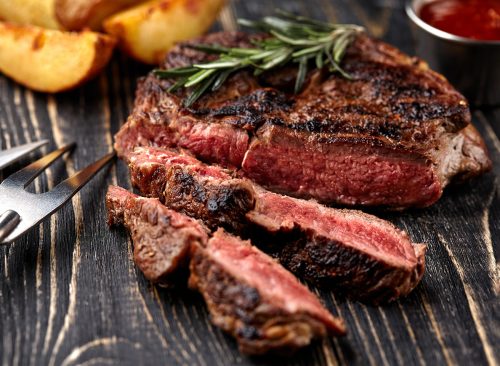
Undercooked meat and eggs can be dangerous for seniors. “Undercooked foods such as eggs, meat, poultry and sushi can cause food poisoning, which can trigger sepsis and septic shock,” according to Sun Health Communities. “Although anyone can develop infection and sepsis, seniors are at higher risk.”
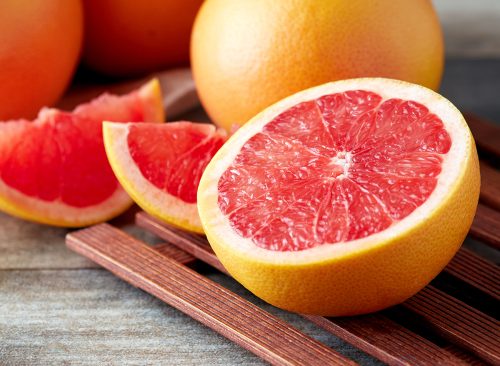
Seniors should be careful about grapefruit due to medication issues. “You wouldn’t expect grapefruit to be on a list of foods to avoid after 60,” says the National Council on Aging (NCOA). “But the juice of a grapefruit can interfere with medications taken for insomnia, anxiety, and high blood pressure. Other fruits—and fruit juices like orange juice, cranberry juice, and tomato juice consumed in moderation—are a better bet for older adults.”
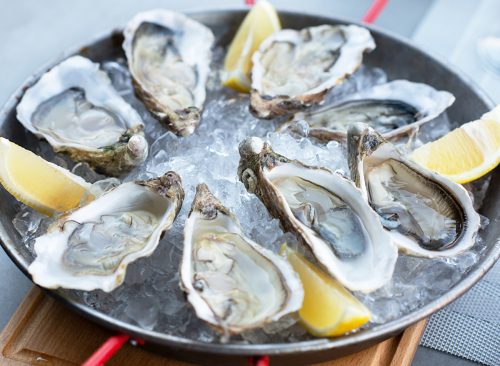
Seniors should not eat raw oysters or shellfish. “To reduce risks of illness from bacteria in food, persons at risk are advised not to eat raw fish and shellfish, raw or unpasteurized milk or cheese, soft cheeses, raw or lightly cooked egg or egg products, raw meat or poultry, raw sprouts, or unpasteurized fruit or vegetable juices,” says the USDA.
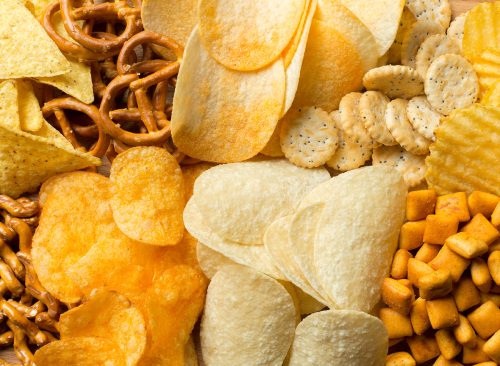
High sodium foods such as processed meats should be avoided. “A diet that’s high in sodium can cause your body to retain too much fluid, resulting in high blood pressure and a greater risk of heart disease, stroke, and kidney disease,” says the NCOA. “The American Heart Association recommends no more than 1,500 mg of sodium per day for most adults, especially those with hypertension.”
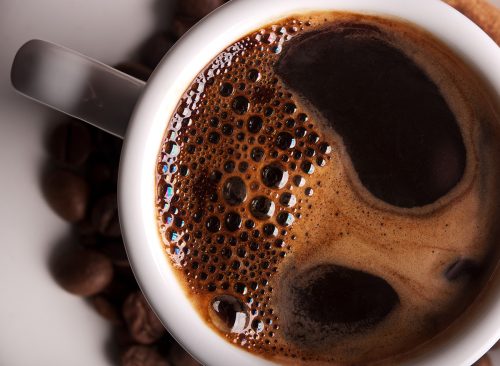
Be careful not to have too much caffeine. “Caffeine not only keeps many people from getting a good night’s sleep, it may increase anxiety and make your heart beat more quickly or irregularly,” says Sun Health Communities. “This could be dangerous if you have a heart condition. Aside from coffee, caffeine is also found in many teas, some sodas, chocolate and even some medications, including over-the-counter painkillers.”
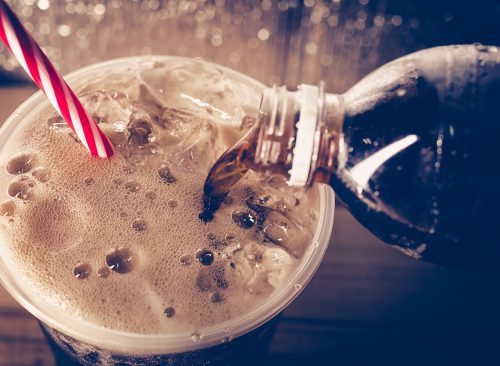
Diet sodas with artificial sweeteners could be dangerous for seniors. “Over the last few years, researchers have linked diet soft drinks to everything from obesity to sugar cravings to depression,” according to Bethesda Health. “But a recent study in the Journal of General Internal Medicine suggests that routinely drinking these artificially sweetened soft drinks may do even more serious damage: they could increase your risk of vascular events like a heart attack or stroke.”
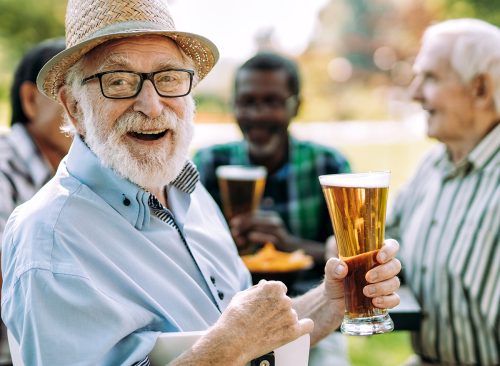
Be careful with alcohol consumption. “Enjoying an occasional alcoholic beverage is harmless for many people. However, if you live with a chronic illness, such as diabetes, or you take certain types of medications, such as antihistamines, painkillers (analgesics) and medications for hypertension (high blood pressure), alcohol should be avoided,” says Sun Health Communities.
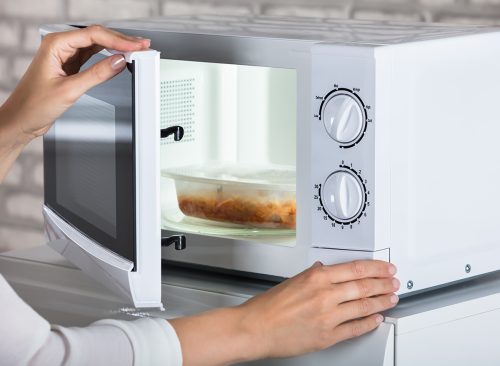
Avoid heating your food in plastics, such as steam-in-the-bag vegetables. “When food is wrapped in plastic or placed in a plastic container and microwaved, substances used in manufacturing the plastic (plasticizers) may leak into the food. In particular, fatty foods such as meats and cheeses cause a chemical called diethylhexyl adipate to leach out of the plastic,” according to Harvard Health.
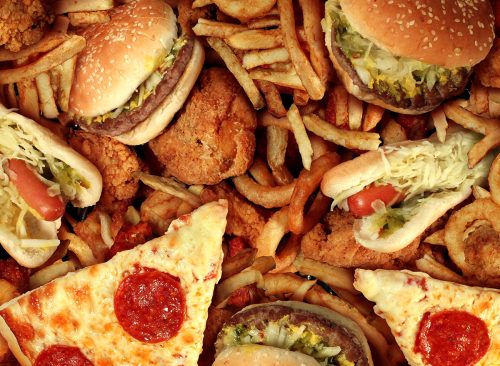
Avoid fried junk foods as much as possible. “Fried fare is typically high in trans fats, hydrogenated oils, and tropical oils, which raise cholesterol and are linked to heart disease, diabetes, and cancer,” says the NCOA. “They’re also often loaded with calories, which can lead to increased calorie intake, weight gain, and obesity.”














